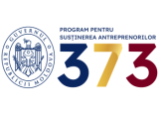
European Council extends the liberalization of trade between Moldova and the European Union for another 1 year.
In particular, the European Council approved the European Commission's proposal to extend for another 1 year (from July 25, 2024 to July 24, 2025) the suspension of all import duties and quotas on the supply of products from Moldova to the EU. As previously reported, on January 31, 2024, the European Commission proposed to extend the suspension of all remaining duties on Moldovan imports, in force since July 2022. It should be noted that since July 25, 2022, Moldova has been subject to the Autonomous Trade Measures (ATM) regime, which was introduced by the EU due to the fact that Moldova's exports to other countries of the world suffered from the war in Ukraine, as they often depended on transit through Ukrainian territory and infrastructure. The ATM regime contributed to Moldova's efforts to reorient its exports toward the EU. Overall, exports from Moldova to the EU increased from €1.8 billion in 2021 to €2.6 billion in 2022. The European Commission has now proposed to extend the suspension of all duties on imports from Moldova for another 1 year, a decision supported by the European Parliament and now the European Council. In practice, this means that the export of 7 agricultural products from Moldova will remain fully liberalized: tomatoes, garlic, table grapes, apples, cherries, plums and grape juice. As noted by the European Commission, by extending the ATM regime for another year, the EU will continue to support and stimulate trade flows from Moldova and Ukraine to the EU and the rest of the world, as well as contribute to the creation of conditions for the expansion of economic and trade relations leading to the gradual integration of Moldova and Ukraine into the EU internal market structures. As noted, the war in Ukraine continues to negatively affect Moldova's ability to trade with the rest of the world. Extending the suspension of import duties and quotas on Moldovan exports will help maintain the conditions necessary for Moldova to continue its trade relations with the EU and with the rest of the world through the EU. Economic Development and Digitalization Minister Dumitru Alaiba said that the decision taken by the EU opens huge opportunities for our entrepreneurs. In particular, Moldovan producers will be able to export more apples, garlic, cherries, grape juice, plums, tomatoes and table grapes to the EU. He said that from 2021 to 2023, Moldovan exports to the EU increased significantly: grapes - from 15,800 to 32,300 tons; fresh apples - from 1,000 to 13,200 tons; plums - from 25,800 to 60,400 tons; cherries - from 74,000 to 2,900 tons. "Moreover, we have products exceeding the established quotas: grapes - by 62%, plums - by 300%, cherries - by 93%. All this is thanks to temporary liberalization. And obviously there is room for more. We can do more. Our products are valued. Thanks to the decision on temporary liberalization, our farmers sold $89.5 million worth of products to the EU in 2023, which is 129% more than in 2022. Liberalization, even temporary, helps to increase the competitiveness of our agricultural exports and helps our farmers find new markets. While Russia imposes an embargo, the EU remains a reliable partner, opening up the market more and more. This is further proof of the EU's continued support for our country. We’d like to express gratitude to our European partners," Dumitru Alaiba wrote on his social media page. // 14.05.2024 - InfoMarket.







